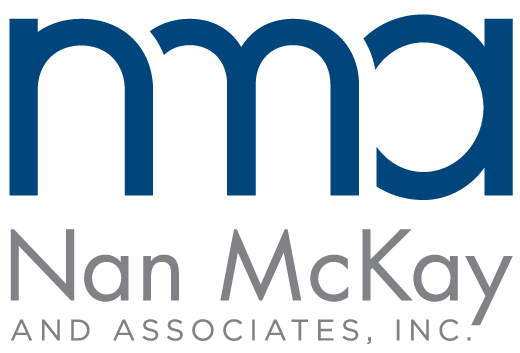Which Parts of HOTMA Are Effective When?
 Since HUD released the first notice covering HOTMA Sections 102 and 104 changes two years ago, your PHA has likely had questions about when you'll need to transition to HOTMA. Here's what you should know as of February 2025.
Since HUD released the first notice covering HOTMA Sections 102 and 104 changes two years ago, your PHA has likely had questions about when you'll need to transition to HOTMA. Here's what you should know as of February 2025.
Skip to: The Most Recent HOTMA Compliance Guidance | Firm Implementation Deadlines | HOTMA Provisions You Can Choose to Implement Now | HOTMA Provisions You Can't Implement Yet
Background
The Housing Opportunity Through Modernization Act was signed into law in 2016. For the most part, initial rulemaking dealt with changes to the Project-Based Voucher (PBV) program and some minor changes to Housing Quality Standards.
HUD released the first notice covering the sweeping changes contained in Sections 102 and 104 of HOTMA in February of 2023. These sections deal with the parts of HOTMA that impact how income, assets, and adjusted income are calculated, as well as how annual and interim recertifications are conducted.
If you're confused about HOTMA effective dates, that's understandable: The deadline to comply with HOTMA guidelines has changed from January 1, 2024 in that first notice, to January 1, 2025 because of the delay in converting from IMS/PIC to the new Housing Information Portal (HIP), and was pushed back again late in 2024. We have a full timeline of HOTMA notices on our site.
The Most Recent HOTMA Compliance Notice
 On December 18, 2024, HUD published Notice PIH 2024-38, which identifies the provisions in HOTMA 102/104 that PHAs must comply with no later than July 1, 2025.
On December 18, 2024, HUD published Notice PIH 2024-38, which identifies the provisions in HOTMA 102/104 that PHAs must comply with no later than July 1, 2025.
Notice PIH 2024-38 states that all transactions with an effective date on or after July 1, 2025 must be processed using requirements in the notice. Since annual reexaminations are processed 90 to 120 days prior to the effective date of the reexam, provisions listed in the notice are actually going to be implemented by PHAs as soon as March 3, 2025, depending on when your PHA starts processing annuals.
PHAs don't have to wait to implement these changes, though. The notice states, "PHAs may immediately begin complying with provisions in the notice once they have made any necessary updates to their materials and processes." The notice does not mention updating PHA policy prior to implementing its provisions, but NMA recommends updating your PHA's administrative plan or ACOP first.
Most importantly, the July 1, 2025 compliance deadline does not apply to other HOTMA 102/104 provisions not listed in the notice. Other provisions are still dependent on implementation of the Housing Information Portal (HIP) and may not be implemented yet.
HOTMA: What's Effective When?
Firm Implementation Deadlines
First, the hard deadlines. Your PHA must:
- Have already stopped enrolling families in the EID as of December 31, 2023
- Have already transitioned to the new Form HUD-9886-A as of February 1, 2025
- Apply HOTMA 102/104 income exclusions listed in 24 CFR5.609 (b)—including new requirements for student financial assistance—for all income examinations effective on or after July 1, 2025
- Apply provisions related to de minimis errors by July 1, 2025
 Use the new HOTMA 102/104 definitions listed at 24 CFR 5.403 and 5.603 for all transactions effective on or after July 1, 2025, including:
Use the new HOTMA 102/104 definitions listed at 24 CFR 5.403 and 5.603 for all transactions effective on or after July 1, 2025, including:
- Earned income
- Unearned income
- Family
- Day laborer
- Independent contractor
- Dependent
- Foster child and foster adults
- Health and medical care expenses
- Minor
HOTMA Provisions You Can Choose to Implement Now
PHAs may, but are not required to:
- Stop using the EIV Income Report during interim reexams
- Use Safe Harbor income determinations from means-tested federal assistance programs to verify a family's income and assets
Additionally, in FAQs dated February 22, 2024, HUD stated PHAs may, but are not required to:
- Accept third-party verification dated within 120 days of the date received by the PHA (rather than 60 days of the reexam/PHA request date)
- Accept a statement dated within the appropriate benefit year for fixed income sources like Social Security
- Accept a self-certification of Social Security numbers (SSNs) along with a third-party document as a last resort if an individual is not able to provide documentation of the SSN
More details about each of the above provisions can be found in Notice PIH 2023-27.
HOTMA Provisions You Can't Implement Yet
All provisions of HOTMA not listed above are currently on hold, since they are dependent on HIP implementation. This means your PHA may not implement certain provisions of HOTMA yet, including:
- All asset provisions, including the asset limitation
- All adjusted income provisions, with the exception of the definition of health and medical care expenses
- Inflationary adjustments (although you may use the HUD-determined passbook rate)
- The new verification hierarchy, which allows for EIV + self-certification
- Annuals using the previous 12-month period income
- Interim reexam requirements
- Non-interim reexam transactions
We'll await further guidance from HUD on when these provisions will be applicable. In the meantime, we hope this article helped you determine when to implement HOTMA provisions based on the most recent guidance from late 2024 and early 2025. To stay up to date, visit our HOTMA news and resources page.
Ms. Samantha Sowards has been a full-time trainer and consultant at NMA since 2008 and currently serves as the Senior Manager of Professional Services. She works with hundreds of housing authorities, management companies, state agencies, and investors each year in the areas of program operations, policy development, training, file reviews/approvals, and compliance. She is a subject matter expert and speaks nationally on a wide array of low-income housing programs, including the housing choice voucher (HCV), public housing, project-based voucher (PBV), HOME, project-based rental assistance (PBRA), and low-income housing tax credit (LIHTC) programs as well as the Rental Assistance Demonstration (RAD) program and other public housing repositioning programs. Currently, Ms. Sowards is NMA’s senior subject matter expert on regulations and implementation of HOTMA.




